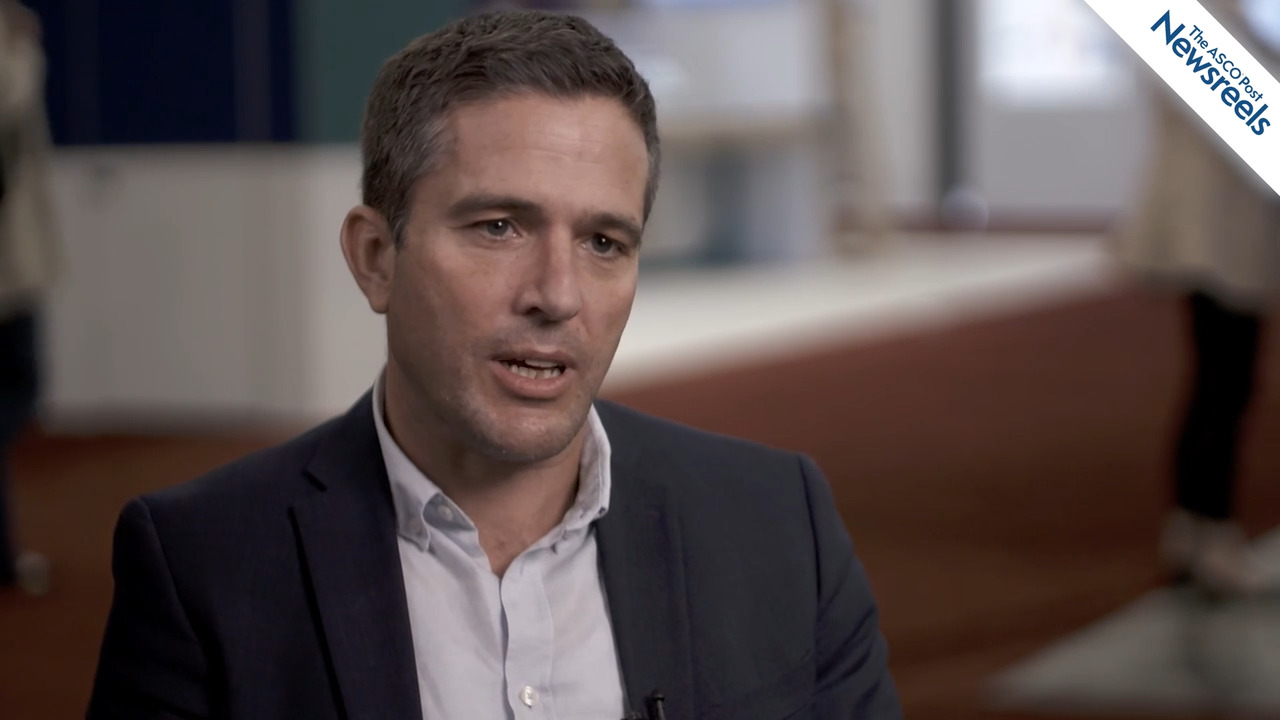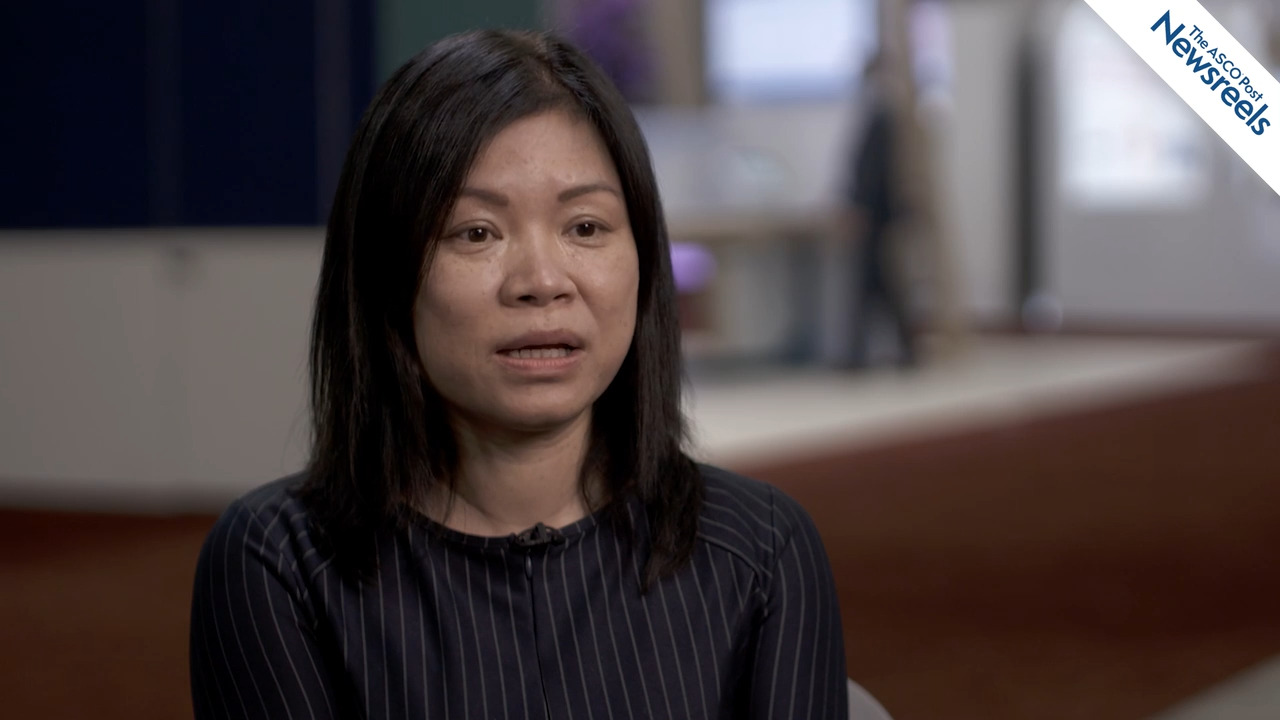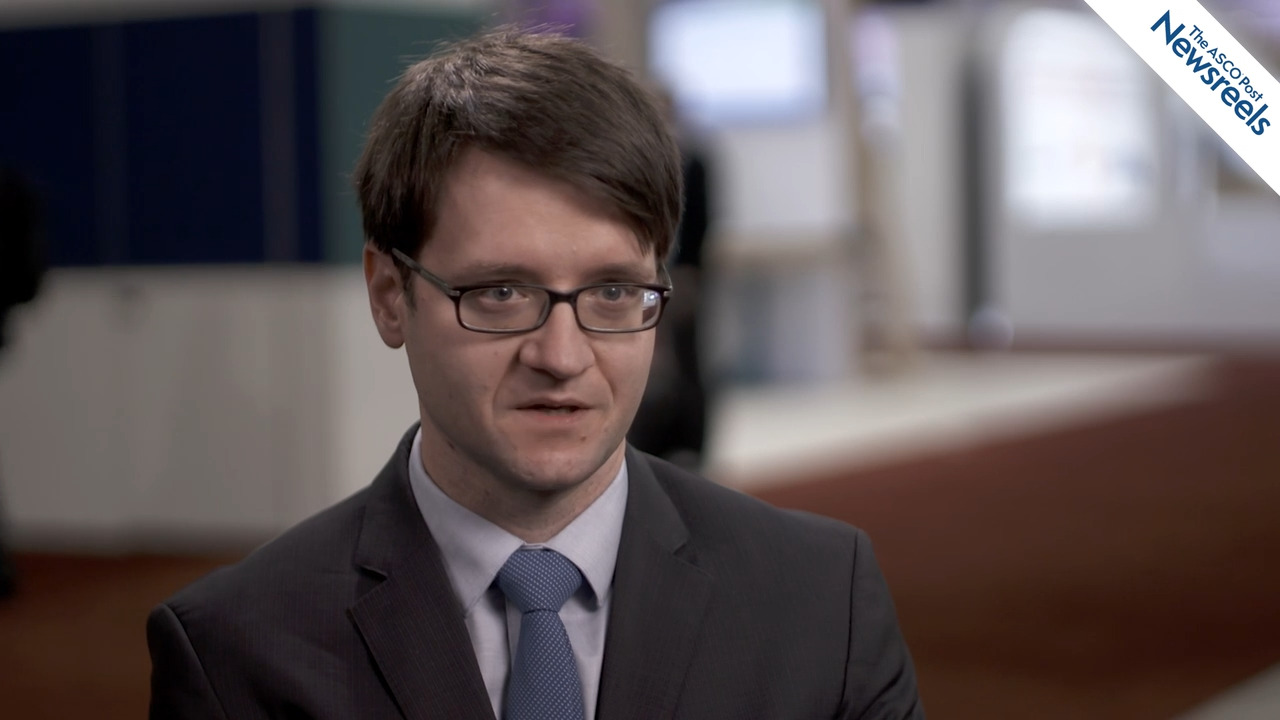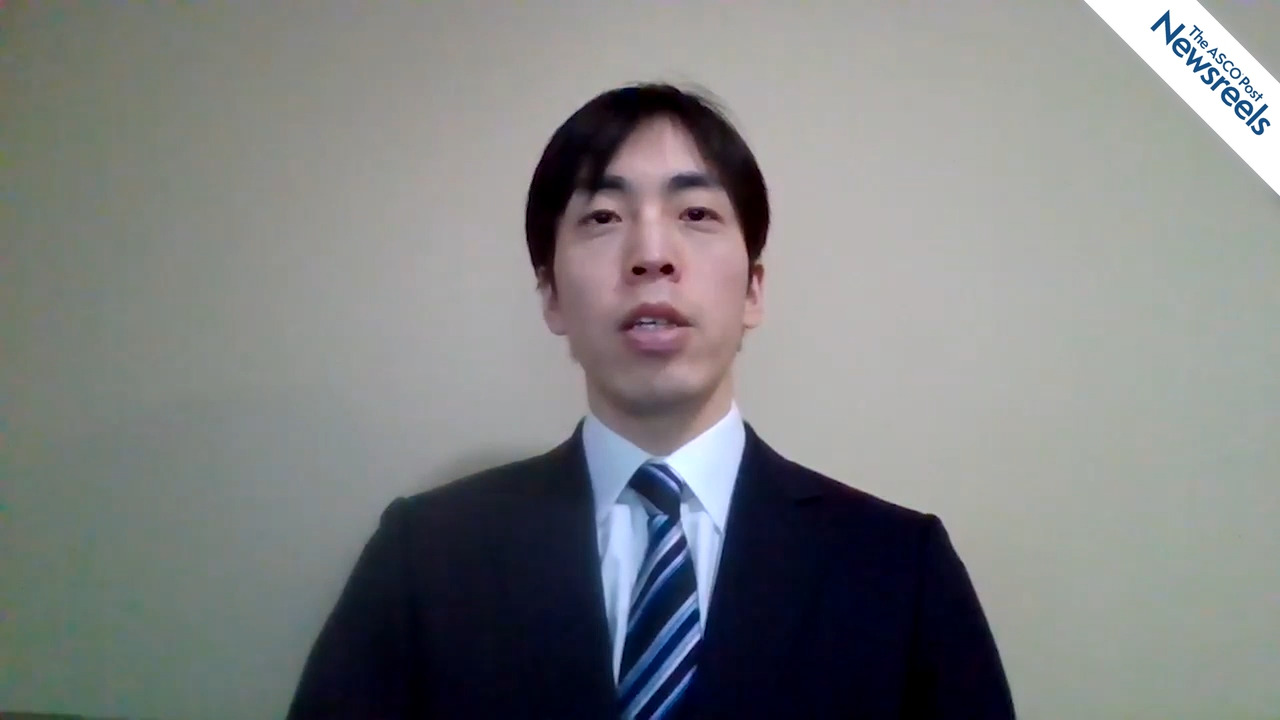Michael R. Bishop, MD, on Aggressive B-Cell NHL: Tisagenlecleucel vs Standard of Care as Second-Line Therapy
2021 ASH Annual Meeting & Exposition
Michael R. Bishop, MD, of the University of Chicago, discusses insights from findings of the phase III BELINDA study, which may inform the design of future CAR T-cell trials, as well as the use of second-line tisagenlecleucel therapy in patients with relapsed or refractory aggressive B-cell non-Hodgkin lymphoma (Abstract LBA-6).
The ASCO Post Staff
Carsten Utoft Niemann, MD, PhD, of Copenhagen University Hospital, discusses a primary analysis of the phase II Vision HO141 trial, which showed the feasibility of stopping and restarting ibrutinib and venetoclax in patients with relapsed or refractory chronic lymphocytic leukemia who have undetectable measurable residual disease. A favorable benefit-risk profile was demonstrated, with no new safety signals (Abstract 69).
The ASCO Post Staff
L. Elizabeth Budde, MD, PhD, of City of Hope, discusses phase I/II findings that showed mosunetuzumab monotherapy induces deep and durable remissions in patients with relapsed or refractory follicular lymphoma who have received two or more prior lines of treatment, including those with double-refractory disease. Because follicular lymphoma is associated with frequent relapses and decreasing progression-free intervals with successive lines of conventional therapy, these data are encouraging (Abstract 127).
The ASCO Post Staff
Leslie S. Kean, MD, PhD, of Dana-Farber/Boston Children's Cancer and Blood Disorders Center, discusses findings from her analysis of the International Blood and Marrow Transplant Research Database, which led to the recent FDA approval of abatacept for the prevention of acute graft-vs-host disease (GVHD) in adult and pediatric patients. The data suggest improved overall survival with the immunosuppressant abatacept in combination with a calcineurin inhibitor and methotrexate following 7/8 HLA–matched unrelated allogeneic hematopoietic stem cell transplantation (Abstract 3912).
The ASCO Post Staff
Andrew Matthews, MD, of the Abramson Cancer Center, University of Pennsylvania, discusses findings from a retrospective study at an academic institution, which showed there was no statistically significant difference in overall survival between induction with CPX-351 and venetoclax/azacitidine for adults with acute myeloid leukemia. Prospective studies to confirm similar effectiveness with careful attention to side effects, quality of life, and impact on transplant outcomes may help clinicians decide between these therapies (Abstract 795).
The ASCO Post Staff
Masayuki Umeda, MD, of St. Jude Children's Research Hospital, discusses his research which showed that UBTF-TD (upstream binding transcription factor-tandem duplications) define a unique subtype of acute myeloid leukemia that previously lacked a clear oncogenic driver. UBTF-TD is associated with FLT3-ITD and WT1 mutations, adolescent age, and poor outcomes. These alterations are critical for future risk-stratification for this patient cohort.





